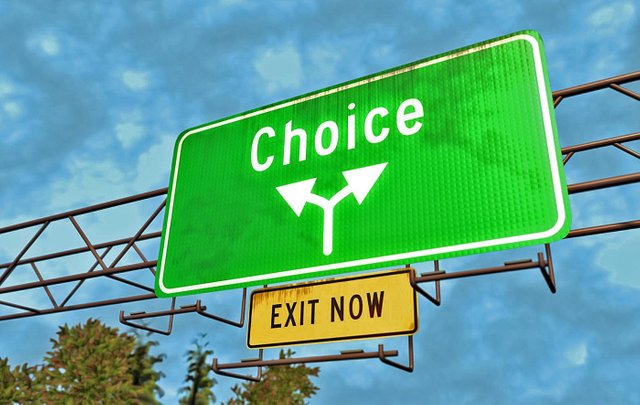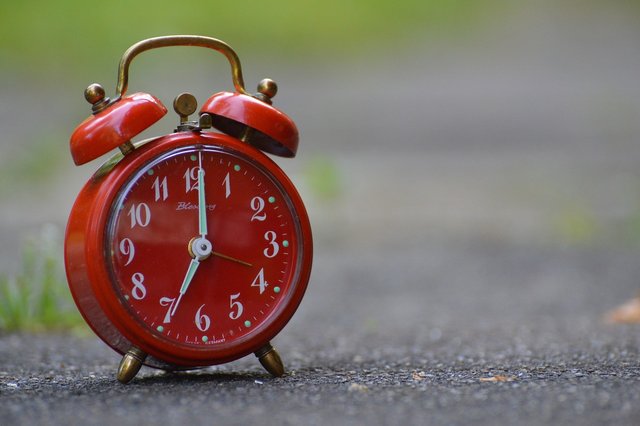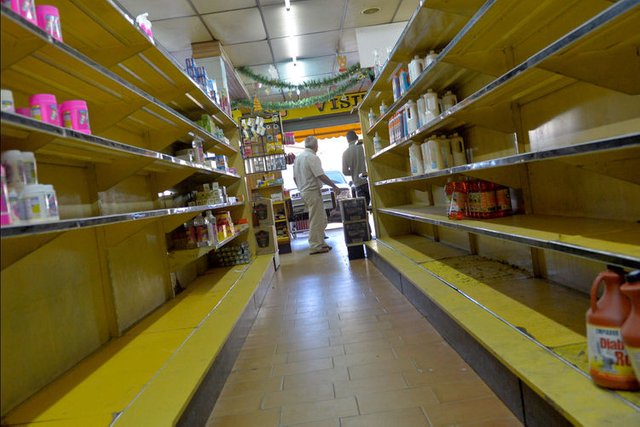
You're an individual.
Let that sink in. Think about the fact that you're an individual.
Yours are the only preferences which you can express. You only speak for yourself. Only you can make your decisions.
And every moment presents a choice.
In every moment, you experience some sense of uneasiness. Every decision you make is an attempt to address and relieve what you perceive to be the most pressing source of uneasiness.
For example, perhaps you're hungry. Perhaps you need to use the restroom. Perhaps you're bored. Perhaps you're lonely. Perhaps you're tired. Perhaps your listless. Perhaps you're anxious. Perhaps you're sore. Perhaps you're sick. Perhaps you're uncomfortable. Perhaps you're concerned about the wellbeing of someone else. Perhaps you're worried about not having enough resources for the future. Perhaps you're experiencing all of this simultaneously.
How do you prioritize addressing each competing source of uneasiness?
You do so according to time preference. You rank all possible uses of your time according to all other possible uses of your time based on your expectation that the order in which you choose to address these issues will maximize your relief.
Time preference and urgency.

As a general rule, the conditions causing the greatest feeling of uneasiness will always be addressed first unless there are no available means by which to address them, or unless it is perceived that addressing some other source of uneasiness first will result in even less uneasiness than would have resulted from addressing the most pressing source first.
For example, if while relaxing after work you find yourself both hungry and needing to use the restroom, you may decide to use the restroom first if your bladder or bowels are causing you greater unease than your hunger. Once you're finished, you're still hungry, but you may have a new dilemma in that you don't want to eat without first washing your hands. As a result, you decide to forego food preparation and consumption until after your hands are clean. Hunger causes you more unease than having dirty hands, but you wash your hands because you expect that your hunger will be better satisfied if the food you eat isn't contaminated with germs from the restroom. It's also possible that you may have taken your future health into consideration, wishing to forego potential issues with disease that may have arisen from possible cross contamination.
The complexities of choice.
Available decisions change and become increasingly more complex and nuanced as more variables are introduced. For example, if you're getting ready for work in the morning instead of relaxing afterwards, you might decide to forego biological imperatives until you arrive at work if you perceive that any other course of action could lead to your tardiness, potentially putting your source of material income at risk.
This could be a different situation entirely if you stayed up the entire previous night. Perhaps you're extremely fatigued and thus you decide to imbibe an entire gallon of coffee. This could make it impossible to resist the urge to use the restroom prior to leaving no matter how much you're worried about being late. Perhaps you're vomiting. Perhaps you're not even feeling well enough to go in. Perhaps you have sick time accrued, thus you're not worried about calling out. Perhaps you were hoping to save your sick time for something else, thus you go in even though you don't feel good.
This process of rationalization whereby a given means is chosen from among several available alternatives for the purpose of attaining some desired end is called purposeful action. Every purposeful action demonstrates and expresses a subjective preference, or value judgment. The logical method by which we trace an individual's action back to the preference which it demonstrates is called catallactics. This method of deductive reasoning is the cornerstone of praxeological science, which is the science of purposeful human action. The study of exchanges between multiple individuals is a subset of praxeology called economics.
The dismal science isn't dismal after all.
Contrary to popular opinion, the purpose of economics is therefore not "exploitation" of people and resources for profit. The purpose of economics is to identify the conditions under which uneasiness is reduced through production and consensual exchange. Once identified, this information can be used to reduce both one's own uneasiness and the uneasiness of others as efficiently and consistently as possible. When people compete with each other to relieve uneasiness through consensual exchange, the result is an increase in quality, efficiency and consistency. This competition to reduce uneasiness prevents those who would reduce uneasiness inefficiently (or not at all) from wasting finite resources by putting them toward uses which either don't reduce uneasiness or create more uneasiness than is reduced.
This competition to reduce uneasiness also leads to the phenomenon called prices. Prices allow one to compare the relieved uneasiness one expects to receive from goods and services with disparate characteristics and purposes. Prices also make it possible to quantitatively express the demand created by the subjective expressions of preference of individuals in terms of some finite supply of a good. This is what makes it possible to accurately plan for the future such that that demand will be adequately supplied.
In plain English, this how we make sure we don't all starve and freeze to death.
Prices and consequences.

Without the competitive activity from which prices arise, prices must be determined by fiat or suppressed altogether. When this happens, there is no method by which to express demand in terms of supply. This leads to over-consumption in the short term and supply deficits in the long term. Absent the competition to reduce uneasiness , the rate at which uneasiness is reduced through exchange will constantly decrease until such time that exchange doesn't happen because it results in more uneasiness than is relieved. All other things being equal, any naturally occurring monopoly would therefore be doomed to failure, and the resources under its control would eventually be freed up for use by those who will use them to compete for the relief of uneasiness, thereby ending the monopolistic conditions under which the good or resource in question is provided.
When this corrective process of competition is prohibited by force, providers of monopolized services run huge deficits in order to continue operations, meaning they can only continue to reduce uneasiness in the present by promising to increase uneasiness in the future through taxation, or by increasing someone else's uneasiness in the present through both taxation and inflation. This is exactly what the individuals calling themselves "government" do through the institution called "the federal reserve" - they use force to prohibit competition in money markets while imposing price controls on the cost of borrowing instead of letting these prices be determined naturally by individuals who are competing to reduce uneasiness. So-called "social spending programs" are therefore used to reduce the present uneasiness of voters by increasing present and future uneasiness of those who work and save. The result has been a mountain of illegitimate transgenerational debt. This alleged "debt" is nothing more than a promise to initiate physical aggression against the bodies and property of people who haven't even been born yet.
The federal reserve is therefore an empirical case study which serves to further demonstrate economic principles which are already praxeologically known: central planning will always fail because central planners don't have access to the information individuals use to make decisions, and because the individuals themselves often don't have or don't even know they have this information until the very moment that they make a decision.
This is why prices are important.
Planning without prices is like navigating without a compass.
To draw on our previous example, individuals can't even predict how frequently they'll take trips to the restroom with one hundred percent accuracy. Most times, they won't even be planning on using a restroom until moments before actually using it. Without prices, there'd be no way to express this information in terms of the finite supply of resources with which toilet paper can be produced, which means there'd be no way to accurately supply the demand of toilet paper. Without this information, either too much would be produced in the short term (thereby wasting resources, which leads to future shortages of both toilet paper and any other good that could have been produced with the same resources), or not enough is produced, which causes a shortage in the present.
Socialism is like trying to centrally plan trips to the restroom, except for absolutely everything everyone does.
Remember how I asked you to reflect on the fact that you're an individual? How would you feel about having to get a hall pass every time you want to relieve the contents of your bladder? How would you feel about having to obtain a hall pass before you do anything?
That's socialism.
This is why socialism will always fail - even when it's mixed into a market economy through a central bank with a government protected monopoly on the supply of currency and control of interest rates. It's not just a bad idea in practice; it's a bad idea on paper. The degree to which the natural discovery of prices is suppressed is the degree to which personal choice and relief from uneasiness is suppressed.
This is also why minarchism will always fail. Minarchism is a euphemism for socialized defense, banking and conflict resolution services. To give a group of people a monopoly on violence is to give them the power to monopolize everything.
As I've demonstrated, monopolizing everything is a sure fire way to maximize uneasiness.
About the Author
I'm Jared Howe! I'm a Voluntaryist hip hop artist and professional technical editor/writer with a passion for Austrian economics and universal ethics. You can catch my podcast every Friday on the Seeds of Liberty Podcast Network.

That was one of my biggest take-aways from Road to Serfdom: the collective will never be capable of being able to address the virtually infinite number of ways that resources can be arranged or used, and thus it will always assign them in an inefficient way.
Downvoting a post can decrease pending rewards and make it less visible. Common reasons:
Submit
Gee, thanks for the crash course on objectivism 101 - individualism
Downvoting a post can decrease pending rewards and make it less visible. Common reasons:
Submit
Not sure if you read past the first few words of the article but it's about praxeology; not objectivism. Thanks for the snark, though! :-)
Downvoting a post can decrease pending rewards and make it less visible. Common reasons:
Submit
Notice nobody is voting for you?
Downvoting a post can decrease pending rewards and make it less visible. Common reasons:
Submit
How convenient, just goes to show that votes don't mean anything around here but who you know. Less than 50 seconds after my comment.
Downvoting a post can decrease pending rewards and make it less visible. Common reasons:
Submit
I am sure both @dan and @ned are already well aware of this kind of voting abuse.
Downvoting a post can decrease pending rewards and make it less visible. Common reasons:
Submit
Oh look... A conspiracy theory that has nothing to do with the article.
Downvoting a post can decrease pending rewards and make it less visible. Common reasons:
Submit
maybe shitki was just conveniently lurking at that exact moment on a 4 hour old post /laugh.
but yeah, kinda some silly shit imo im sure theres some out of this world excuse
Downvoting a post can decrease pending rewards and make it less visible. Common reasons:
Submit
I guess I'm not tracking what's going on?
Downvoting a post can decrease pending rewards and make it less visible. Common reasons:
Submit
"Abuse"? So, when you subjective, socialistic low lives go around harassing people's blogs, who support opinions that you disagree with, it isn't abuse?
Downvoting a post can decrease pending rewards and make it less visible. Common reasons:
Submit
Well,
Downvoting a post can decrease pending rewards and make it less visible. Common reasons:
Submit
individual > collective
Downvoting a post can decrease pending rewards and make it less visible. Common reasons:
Submit
Perhaps.
Downvoting a post can decrease pending rewards and make it less visible. Common reasons:
Submit
exactly :)
Downvoting a post can decrease pending rewards and make it less visible. Common reasons:
Submit
Life is really like a labirynth, you are presented everytime with a choice, that will either end at a dead end, or will bring you closer to the reward prize, be that success or anything you set your goals to.
Downvoting a post can decrease pending rewards and make it less visible. Common reasons:
Submit
Some people will attack you for pointing out that they are banging their head against the wall at a dead end. Some people will only stop banging their head against the wall if they realize on their own that doing so is pointless. That's why ithe freedom to fail is so important
Downvoting a post can decrease pending rewards and make it less visible. Common reasons:
Submit
I agree there, it's better if the market punishes people than the government.
Downvoting a post can decrease pending rewards and make it less visible. Common reasons:
Submit
choices = options
Downvoting a post can decrease pending rewards and make it less visible. Common reasons:
Submit
Epic post! Excellent introduction to praxeology. Well articulated and thoroughly practical, my hat goes off to you sir.
Downvoting a post can decrease pending rewards and make it less visible. Common reasons:
Submit